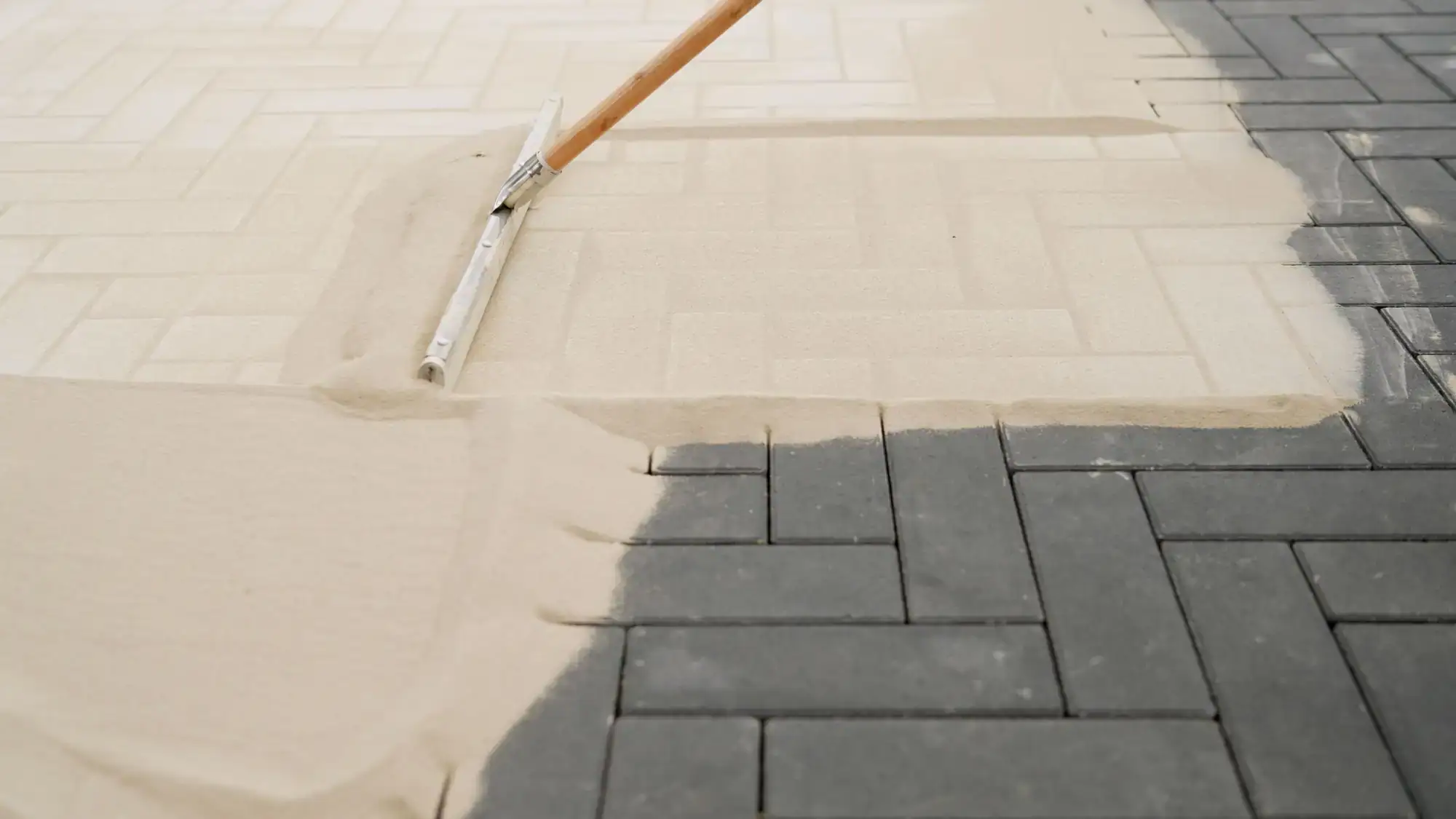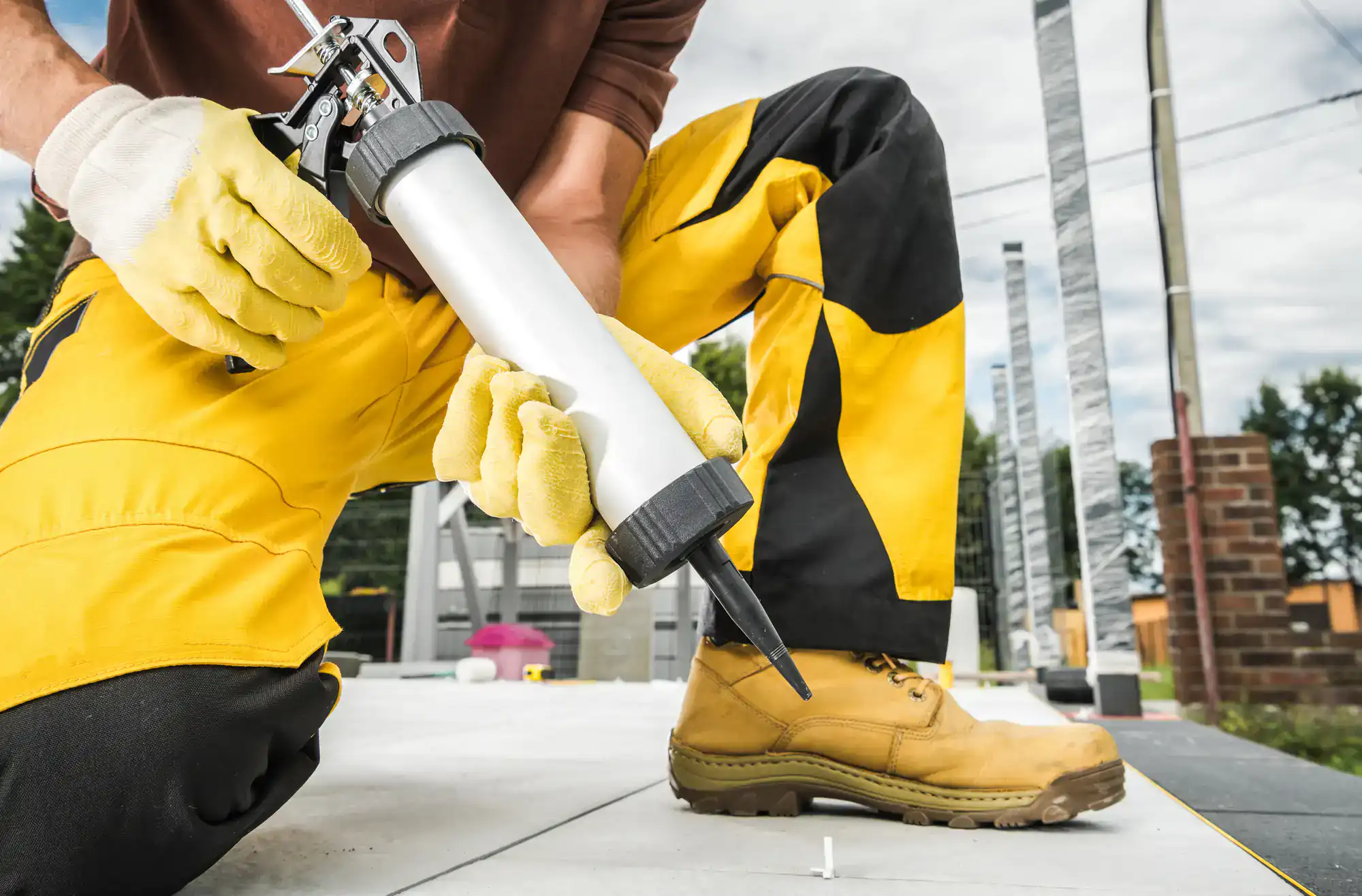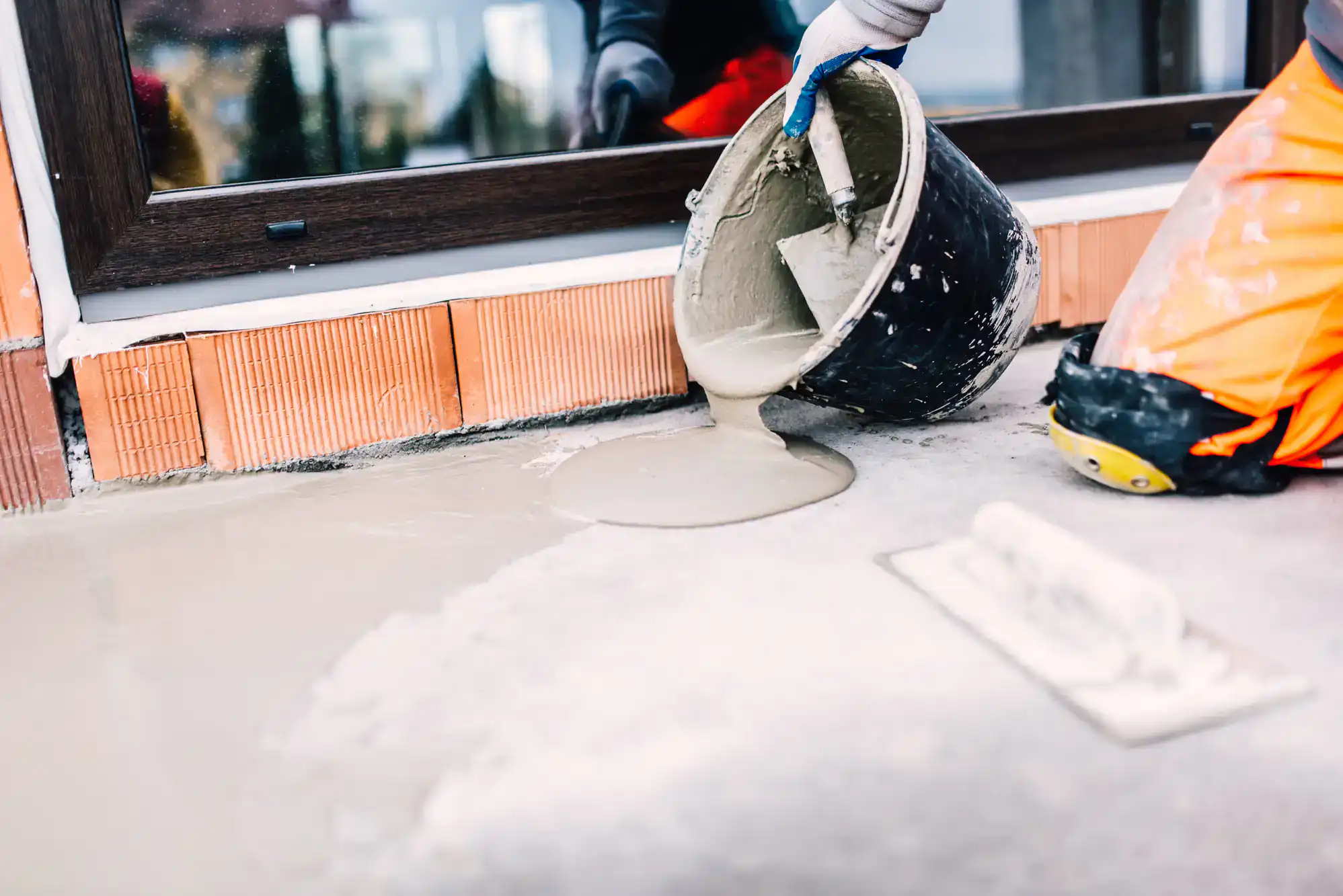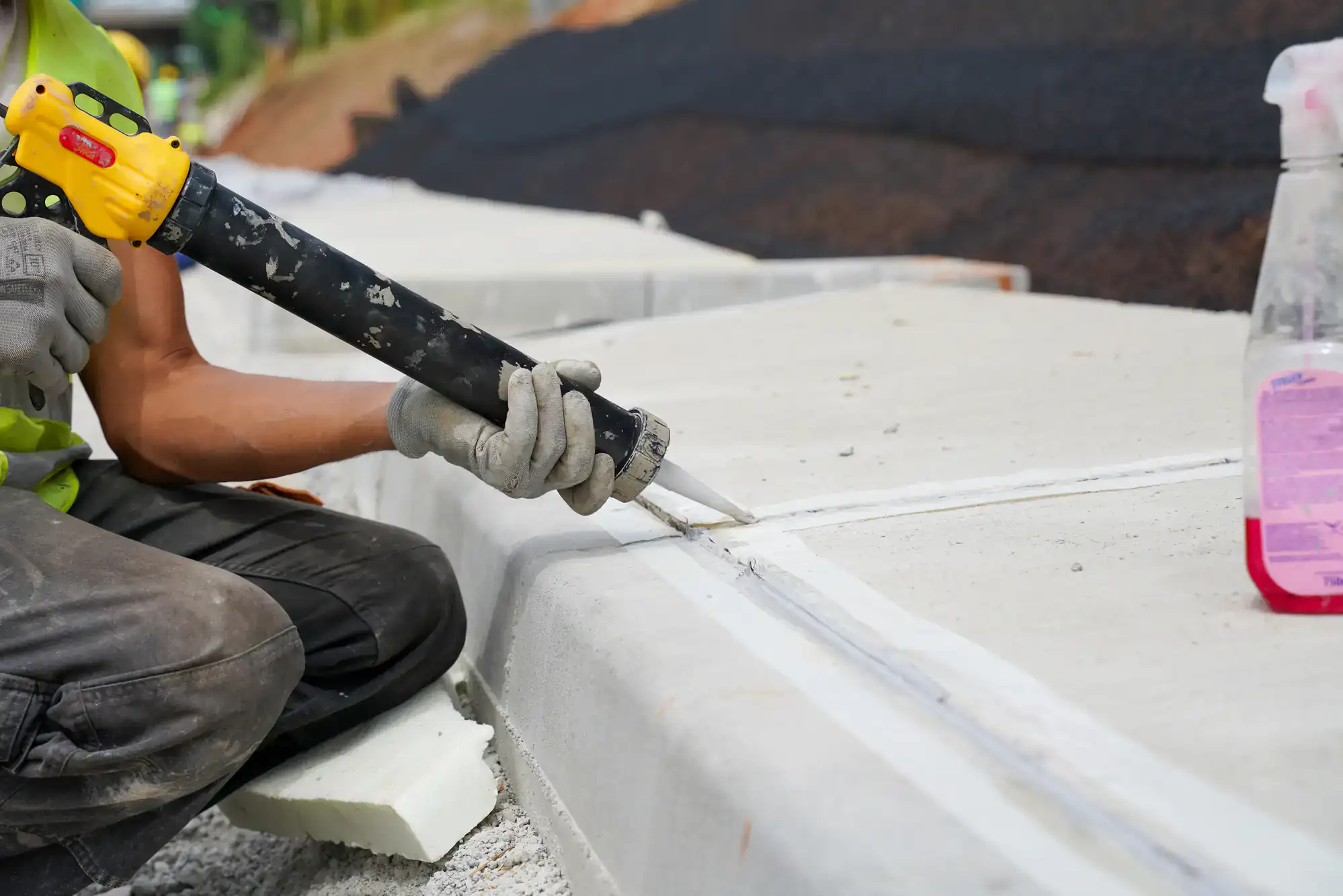Concrete Sealing in Boca Raton, FL
Stop Moisture Before It Ruins Your Floors
Professional concrete sealing that actually works in South Florida’s brutal humidity – protecting your investment for decades, not months.

Hear from Our Customers

Commercial Flooring Solutions Boca Raton
Your Floors Stay Dry, Safe, and Professional
You know what happens when concrete isn’t properly sealed in Florida. Moisture seeps up through the slab, coatings fail within months, and you’re back to square one with cracked, stained floors that look unprofessional and create safety hazards.
Our concrete sealing process stops moisture migration at the source. No more peeling coatings, no more mold growth, no more expensive do-overs. Your floors stay protected against South Florida’s 75% humidity levels and daily temperature swings that destroy standard sealing jobs.
The result? Floors that actually last, maintenance costs that drop, and a workspace that looks professional year after year.
Concrete Sealing Contractor Boca Raton
We Actually Understand Florida’s Climate Challenges
We’ve been solving concrete sealing problems for commercial and industrial facilities throughout Boca Raton and Palm Beach County. We’re not another general contractor trying to figure out moisture control – we specialize in it.
South Florida’s unique climate demands specialized approaches that most contractors don’t understand. The 72-76% humidity levels, daily temperature swings, and moisture migration through concrete slabs require precise testing, proper timing, and professional-grade materials that can handle these conditions.
We’ve worked with warehouses, manufacturing facilities, retail spaces, and commercial buildings across Boca Raton’s zip codes, from 33431 to 33496. Every project gets the same thorough approach: proper moisture testing, climate-controlled application when possible, and materials specifically chosen for Florida’s challenging environment.

Moisture Control Floors Process
The Right Way to Seal Concrete in Florida
First, we test your concrete for moisture levels using calcium chloride testing and relative humidity probes. This isn’t optional in Florida – it’s the difference between a sealing job that lasts and one that fails within months. We need to know exactly what we’re dealing with before we start.
Next comes surface preparation. We mechanically prepare the concrete to ensure proper adhesion, removing any existing coatings or contaminants that could compromise the seal. The concrete needs to be completely clean and at the right moisture level before we apply anything.
Then we apply the sealing system. We use professional-grade penetrating sealers and moisture barriers designed specifically for high-humidity environments. The timing matters – we often work during morning hours when dew points are lowest, and we control the environment as much as possible during application.
Finally, we let it cure properly. In Florida’s climate, concrete typically needs 30-60 days minimum curing time before any sensitive coatings. We don’t rush this process because that’s where most failures happen.

Ready to get started?
Long-lasting Flooring Solutions Boca Raton
What You Get with Professional Concrete Sealing
Our concrete sealing service creates a permanent moisture barrier that stops vapor transmission through your concrete slab. This prevents the coating failures, mold growth, and structural damage that plague improperly sealed floors in South Florida.
You get enhanced durability that withstands heavy foot traffic, equipment movement, and chemical exposure. The sealed surface resists stains, makes cleaning easier, and maintains a professional appearance even in high-traffic commercial environments.
For Boca Raton businesses, this means floors that can handle the demands of Florida’s climate without constant maintenance. Manufacturing facilities stay compliant with safety standards, retail spaces maintain their professional appearance, and warehouses avoid the slip hazards that come with moisture problems. The investment pays for itself through reduced maintenance costs and extended floor life – often decades instead of years.

How long does concrete sealing last in Florida’s humid climate?
Professional concrete sealing in Florida typically lasts 10-20 years when done correctly, but this depends entirely on the quality of materials and application process used. The key difference is using moisture barriers and sealers specifically designed for high-humidity environments rather than standard products that fail within 1-3 years.
South Florida’s 72-76% humidity levels and daily temperature swings create unique challenges that require specialized approaches. We use penetrating sealers that chemically bond with the concrete and professional-grade moisture barriers that can handle vapor transmission rates common in this climate.
The biggest factor in longevity is proper moisture testing and surface preparation before application. Skipping these steps or using DIY products almost guarantees premature failure, which is why so many businesses end up resealing floors every few years instead of getting the decades of protection they paid for.
Why do concrete sealers fail so quickly in South Florida?
Most concrete sealer failures in South Florida happen because contractors don’t account for the extreme humidity and moisture migration through concrete slabs. Standard sealers that work fine in dry climates get overwhelmed by the constant vapor pressure pushing up through the concrete.
Florida’s daily temperature swings of 25°F create expansion and contraction cycles that stress improperly applied coatings. When you combine this with humidity levels that often exceed 75%, you get the perfect conditions for coating delamination, bubbling, and peeling.
The other major cause is rushing the process. Concrete needs 30-60 days minimum curing time in Florida’s climate before sealing, but many contractors apply sealers too early to meet project deadlines. This traps moisture under the coating, leading to inevitable failure. Professional moisture testing before application prevents these problems, but it’s often skipped to save time and money upfront.
What’s the difference between penetrating and topical concrete sealers?
Penetrating sealers absorb into the concrete and chemically react to strengthen and seal from within, while topical sealers create a protective film on the surface. For Florida’s climate, penetrating sealers typically perform better because they’re less likely to delaminate under moisture pressure.
Topical sealers like acrylics and epoxies can provide excellent protection and aesthetic enhancement, but they require perfect moisture conditions during application and curing. In high-humidity environments, they’re more prone to bubbling, peeling, and adhesion failures if not applied under controlled conditions.
Penetrating sealers don’t change the surface appearance much, but they provide long-term protection against water infiltration and freeze-thaw damage without the risk of delamination. Many professional installations use a combination approach – penetrating sealer for moisture protection with a compatible topical coating for enhanced durability and appearance. The key is matching the sealer system to your specific environment and performance requirements.
How do you test concrete moisture levels before sealing?
We use two primary testing methods: calcium chloride testing (ASTM F1869) and relative humidity probe testing (ASTM F2170). The calcium chloride test measures vapor emission rates by placing sealed containers with pre-weighed calcium chloride tablets on the concrete surface for 72 hours, then calculating moisture transmission rates.
Relative humidity probe testing involves drilling small holes into the concrete and inserting sensors at 40% of the slab depth to measure internal moisture conditions. This gives us a more accurate picture of what’s happening inside the concrete, not just at the surface.
Both tests are critical in Florida because surface conditions can be misleading. A slab might appear dry on top but still have high internal moisture content that will cause sealer failure. We typically see readings above 4 pounds per 1,000 square feet on the calcium chloride test, which indicates the need for moisture mitigation before sealing. Without this testing, you’re essentially gambling with your investment.
Can you seal concrete that already has moisture problems?
Yes, but it requires specialized moisture mitigation systems rather than standard sealing approaches. If concrete is already showing signs of moisture problems – like efflorescence, mold growth, or previous coating failures – we need to address the source before applying any new sealers.
This typically involves using vapor-tolerant primer systems, moisture-blocking barriers, or in severe cases, installing drainage systems to reduce hydrostatic pressure. Simply applying another sealer over existing moisture problems will just trap the moisture and accelerate deterioration.
The key is identifying whether the moisture is coming from above (humidity, spills) or below (groundwater, vapor transmission). Surface moisture can often be controlled with proper ventilation and dehumidification during treatment, but vapor transmission through the slab requires more intensive solutions. We always recommend professional assessment of existing moisture problems because the wrong approach can make the situation worse and more expensive to fix later.
What maintenance does sealed concrete require in Florida?
Properly sealed concrete in Florida requires minimal maintenance compared to unsealed surfaces, but regular inspection and cleaning are important for longevity. We recommend monthly visual inspections for any signs of coating wear, especially in high-traffic areas or where chemical exposure occurs.
Routine cleaning with pH-neutral cleaners helps maintain the seal and prevents buildup of substances that could degrade the coating over time. Avoid harsh chemicals or abrasive cleaning methods that can damage the sealer surface. Most sealed concrete can be maintained with simple sweeping and occasional mopping.
The biggest maintenance consideration is monitoring for any signs of moisture intrusion – like new stains, discoloration, or coating bubbling. These can indicate that the seal has been compromised and needs professional attention. Depending on traffic levels and environmental exposure, professional recoating may be needed every 10-15 years, but this varies significantly based on the original sealing system used and how well it’s maintained.
Other Services we provide in Boca Raton





